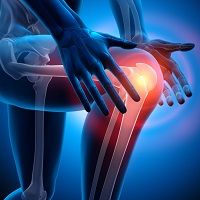Article
Self-Donated Fat Cells Could Be the Answer for Osteoarthritis Pain
Author(s):
Osteoarthritis (OA) patients may have an effective new treatment to look forward to following the development of self-donated fat cell therapy.

Osteoarthritis (OA) patients may have an effective new treatment to look forward to following the development of self-donated fat cell therapy.
Researchers in the Czech Republic evaluated a subject pool of 1,114 OA patients who volunteered to undergo autologous fat cell transplants. The patients had grade 2 to 4 degenerative osteoarthritis and the disease mainly effected their hip or knee.
“In this study we evaluated the safety and efficacy of freshly isolated autologous stromal vascular fraction cells (SVF cells),” Jaroslav Michalek, PhD, said in a news release. “We hypothesized that the SVF cell treatment might contribute to cartilage healing.”
The team followed the patients, consisting of 52.8% male and an average age of 62, for between 12 and 54 months after the single dose of SVF cells. The amount of pain, non-steroid analgesic usage, limping, joint movement, and stiffness were examined at the 3, 6, and 12 month marks.
The results, published in Cell Transplantation, showed that 91% of the patients reported an improvement of at least 50% after one year. Demonstrating even better relief, 63% of the patients reported an improvement rate of at least 75%.
“No serious side effects, systemic infection or cancer was associated with SVF cell therapy," the study said. "Most patients improved gradually three to 12 months after treatment."
Michalek, of the International Consortium for Cell Therapy and Immunotherapy, noted that slower healing following the therapy was noticed in those who were obese or had a higher grade of osteoarthritis.
For a disease that effects about 14% of adults ages 25 and older, as well as 1/3 of adults ages 65 and older, these findings are a step in the right direction. Not only were the results good news for osteoarthritis patients, but others suffering from illnesses may be able to benefit from the therapy as well.
“Adipose-derived cells have potential application in a wide range of clinical disorders, including myocardial infarction, stroke, Crohn's disease, multiple sclerosis (MS), rheumatoid arthritis, and breast augmentation and reconstruction,” Michalek said.
While this study does not verify SVF cell therapy as a long-term solution or cure, the outcome provides good news for clinicians and patients.
“In conclusion, here we report a novel and promising treatment approach for patients with degenerative OA that is safe, cost-effective, and relying only on autologous cells,” the authors concluded.


